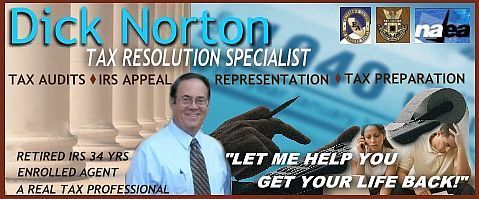Until the changes that took effect on January 1, 2018, taxpayers who met specific requirements could deduct 50% of the cost of meals provided to clients, customers, vendors or others for whom a business purpose for the expense could be established. In general, for each meal, the taxpayer would have to document five (5) elements:
- Date of the meal/entertainment
- Amount of the meal
- The location of the restaurant/eating establishment
- The names of the individuals who were entertained
- The purpose for the meal/entertainment
Typically, the receipt for the meal would have the information required for the first three items; on the reverse of the meal ticket or receipt, I recommend to clients that they write down the names of the individuals who were there, and a brief note as to the purpose for the meeting/meal. Without all five elements provided, the cost of the meal would not be allowable as a deduction.
The deduction for entertainment expenses was always a favorite audit item by the IRS since most taxpayers (unless previously audited for the expense) fail to maintain the information/records to prove deductibility.
So, to be deductible, your expenses for entertainment must be ordinary and necessary to entertain a customer or client and must meet the following:
- Your expenses are of a type that qualifies as meals or entertainment
- Your expenses bear the necessary relationship to your business activities
- You keep adequate records and can substantiate the expenses.
The types of expenses that can qualify can include items other than just meals. Expenses incurred to provide entertainment, amusement or recreation generally can be deductible under the proper conditions. Some examples include entertaining guests at:
- nightclubs
- social, athletic and sporting clubs
- theaters
- sporting events
- hunting, fishing, vacation and similar types of trips.
Entertainment expenses include the cost of meals you provide to customers or clients, whether the meal alone is the entertainment or it is a part of other entertainment. For example, refreshments at a football game would be included. A meal expense includes the cost of food, beverages, taxes and tips.
Tickets to entertainment events can be deductible. However, the deduction is limited to the face value of the ticket (if you had to pay more than face value due to the popularity of the event). There is an exception when the event benefits a charitable organization if the main purpose for the event is to provide the benefit. In such a situation, the full cost is deductible, and the 50% limitation does not apply. As an example, a store could provide bottled water to participants in a 10K race to raise funds for cancer research. The full cost is deductible by the store since the primary purpose was to promote goodwill in the community.
To be deductible, the entertainment expense must meet two test:
- directly related test
- associated with test
Directly Related Test
In this scenario, the entertainment must take place in a clear business setting – like a restaurant. If you cannot meet the clear business setting requirement, then all of the following conditions must be met:
- You must have more than a vague expectation of deriving some income or other specific business benefit (other than a favorable attitude of the person entertained) from the meal or entertainment.
- During the meal or entertainment, you actively engaged in business discussions
- The main purpose of the combined business and entertainment is the active conduct of a business.
The following situations create a presumption that the directly related test has NOT been met. The burden is on the taxpayer to prove otherwise:
- There are substantial distractions (such as meetings or discussions occurring at night clubs, theaters, or sporting events)
- The meetings or discussions take place a social gatherings such as cocktail parties
- The group includes people other than business associates
Associated With Test
Meals and entertainment expenses may be deductible under this more lenient test so long as they meet two requirements:
- The expenses are associated with the active conduct of your business. In other words, there must be a clear business purpose such as getting new business or bolstering an existing business relationship.
- The meal or entertainment occurs before or after a substantial and bona fide business discussion.
Timing is important! Entertainment that occurs on the same day as the business discussion will meet the “directly precedes or follows” requirement. If not on the same day, this presumption will not apply and the taxpayer will have to prove the connection.
Relevant facts considered in making a determination for deductibility would include the place, date and duration of the business discussion, whether you and your business associate are from out of town (and the dates of arrival and departure), and the reasons the entertainment didn’t take place on the same day as the business discussion.
In all circumstances, the expenses claimed must be reasonable in amount. Any expense deemed extravagant or lavish would not be deductible.
NEW RULES STARTING JANUARY 1, 2018
Generally, under the new tax law, expenses for meals and entertainment are NOT DEDUCTIBLE. There are certain exceptions that are covered below.
